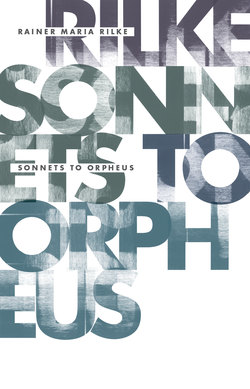Читать книгу Sonnets to Orpheus - Rainer Maria Rilke - Страница 7
На сайте Литреса книга снята с продажи.
ОглавлениеFOREWORD
“All of my poems are about time,” the Nobel Laureate Joseph Brodsky once noted, “about what time does to man.” Inspired by the immortal god of song, Orpheus, as well as the all-too-mortal young ballerina, Wera Ouckama Knoop, Rainer Maria Rilke’s Sonnets to Orpheus are also preoccupied with time—what expires in it as well as what endures beyond it:
We are the driving ones.
Yet, the way time goes by—
see that as trivial,
next to what stays.
All that is rushing by,
will be long over soon;
only what then remains
consecrates us. (1:22, ll. 1-8)
Christiane Marks’s pellucid translations themselves are also about time—about how poems are absorbed and felt and understood over time. Encountering them, I was reminded of George Steiner’s important apperception that literary translation is, among other things, the most sophisticated act of reading possible. These translations are the product of a life’s attention to Rilke’s masterwork. They embody and enact one of reading’s greatest pleasures—that of returning to a text over time. Reading itself is also always an experience that occurs in time.
Poetic meter, of course, is also a kind of measuring of time, and one of the distinctions of Marks’s translations is her palpable although light-handed attention to meter, aiming in particular to convey the predominantly dactylic verse of this sonnet sequence. Marks succeeds not only in capturing Rilke’s music—often sacrificed in translation—but also in rendering his singular and indelible imagery, imagery obsessed with meditating about time, song, and listening, imagery that is always aiming to perceive things that are overlooked or hard to see:
Mirrors: There’s never been true description
of what, in your innermost nature, you are.
You, who seem made of the holes of sieves
filled with the in-between spaces of time. (2:3, ll. 1-4)
Having spent considerable time now with these translations myself, I feel about them the way Rilke describes the rose: “to us you are the filled, the numberless blossom, / the object that’s inexhaustible” (2:6, ll. 3-4). In a synesthetic moment of inspiration, Rilke likens its scent to sound. “For centuries now, your fragrance has called / over to us the sweetest of names,” he writes (ll. 9-10). Christiane Marks’s translations likewise call out and convey Rilke’s poetry to a new generation, and “It suddenly fills the air like fame” (l.11).
—Jennifer Grotz
